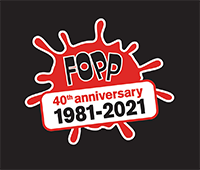Another Stanley Long and Arnold Miller exposé of the ‘real’ London, now with a Mondo Cane flavour that leaves you with whiplash as you veer from naughty glimpses of burlesque shows, to mods and rockers, to ‘wife-swappers’ and back again – all topped off with a very entertaining anthropological voiceover. A highly amusing peek into a Soho lost to the mists of time.
Edgar Wright
Preceded by their own West End Jungle (1961), and London in the Raw (1964) but overshadowed by the success of the Italian production Mondo Cane (1962), Primitive London was the third ‘Mondo’ film produced under Stanley A. Long and Arnold Louis Miller’s Searchlight Films banner. Primitive London bears all the hallmarks of good ‘Mondo’. It is a bizarre and tenuously linked hotchpotch of documentary sequences and staged footage, entertainingly mixing the salacious and the shocking with the banal, the weird and the downright ridiculous. While stern commentary condemns depraved modern society, the visuals offer an intermittently lurid sideshow spectacle in which the viewer is invited to revel – and there is much to feast your eyes on here. Treats in store include mods, rockers and beatniks chatting with an unseen but rather uptight sounding interviewer (he almost sounds jealous); bloody footage of a birth; a grisly re-enactment of a Jack The Ripper murder (inserted at the last minute to ensure that the film was given an ‘X’ certificate); flabby men in a sauna bath; women modelling topless swimsuits; the difficulties inherent in accurate hat sizing; the daily life of a Soho stripper, and a chiropodist enjoying his work. You will also witness a debauched party game involving an umbrella, which soon escalates into a full-scale ‘key party’ – the inspiration behind one of Stanley Long’s most famous works, The Wife Swappers (1970).
Footage of battery chickens being killed still retains the power to shock, and vegetarians might wish to look away. Stanley Long, who directed and shot most of the key sequences in the film, recalls: ‘I never ate chicken for a year after shooting… I came home and burnt all the clothes I had worn that day.’ Watch out for the sequence where the commentary takes a more self-conscious turn, as the voices of the ‘director’ and the ‘editor’ suddenly obliterate the sanctimonious voiceover and, in cod American accents, discuss what the audience want to see (girls in topless swimsuits) – and what they actually get to see (a splendidly arbitrary cow and swan), in a strange sequence which speaks volumes about exploitation filmmaking, and also about film censorship in the pre-permissive1960s. Snootily dismissed at the time by the Monthly Film Bulletin as a ‘modishly cynical and negative exposé of the obvious’, in retrospect the film is a highly entertaining period piece, more interesting precisely because of its unusual and vaguely seedy counterpoint to the prevailing myth of ‘Swinging Sixties’ London. Indeed, as an artefact of its era, Primitive London provides a fascinating antithesis to the frothy fixed-grin joviality of its documentary contemporary the Pathé Colour Pictorial (1955-1969). First screened at London’s famous Windmill Theatre, ‘exotic dancers’ were hired to celebrate the premiere, including one girl resplendent in a borrowed fur-coat and leopard skin bikini, reminiscent of the outfit (barely) worn in the unforgettable ‘Taming the Wild One’ dance included in the film, and reflected in posters and publicity for the production. She ‘toured’ the West End with a cheetah on a leash, loaned by Colchester Zoo (a leopard wasn’t available), thus ensuring that the film played to a full house. When it was released in 1965, following censorial snipping, Primitive London was documented as having a running time of 76 minutes. The version we are screening tonight is significantly longer, and runs just under 84 minutes. Yes, cineastes, you will see topless swimsuits!
Vic Pratt, Curator, BFI National Archive
Thirteen notes on ‘Primitive London’ by Stanley Long
-
The ‘Rockers’ were filmed at the Ace Café on the North Circular road.
-
Car scrapyard: at that time there had been ten million deaths on the roads. I wonder how the statistics have fared since?
-
The Jack the Ripper scene was put in to get an X cert. as the film only qualified for an A, and the distributors wanted an X! I’m not so sure that this sequence had a proper place in the film. But then there were several scenes about which I thought the same.
-
The nightclub scene was shot in Harry Meadows’ Churchill Club in Bond Street. As entertaining was an allowable expense for companies they did incredible business. This however was stopped by Harold Wilson!
-
It was me that flew the aircraft in the title sequence.
-
Ray Martine was a popular comedian at the time – very politically incorrect, of course – would never have been tolerated today. It was filmed at the Establishment Club in Greek Street.
-
The opening of a record shop by Billy J. Kramer was photographed in Islington. Terry Dene, an enormous pop idol, had by this time fallen from grace and was not noticed by the crowd of young girls! Billy J. is still around and lives in America and still does gigs in Las Vegas.
-
I never ate chicken for a year after shooting the chicken processing station. It was very unpleasant and the stench was unbelievable. I came home and burnt all my clothes I had worn that day!
-
The corn removal scene was a man in Brixton, South London. I’ve never heard of anyone who does this since.
-
The strippers running about the West End were a common sight. They used to earn 10 shillings (50p) for each club. They could do about 20 a day.
-
Topless fashion show: in the final print this did not appear as such. The censor once again produced his scissors and no topless dresses appeared in the film which was released in the cinemas.
-
Key parties were all the rage in sixties London and were the forerunner of the craze of wife swapping – a subject which I was to return to in 1970…
-
Notice all the collar and ties?
LOOK AT LIFE: GOODBYE PICCADILLY
UK 1967
9 mins
PRIMITIVE LONDON
Director: Arnold Louis Miller
©/Production Company: Searchlight Films
Presented by: Troubadour Films
Executive Producers: Tony Tenser, Michael Klinger
Producers: Arnold Louis Miller, Stanley A.Long
Production Secretaries: Sheila Miller, Patricia Preece
Screenplay: Arnold Louis Miller
Director of Photography: Stanley A. Long
Electricians: Pax Electric
Assistant Cameramen: Don Lord, Keith Jones,
Terry Winfield
Editor: Stephen Cross
Music Composed/Arranged by: Basil Kirchin, Johnny Coleman
Orchestra Directors: Basil Kirchin, Johnny Coleman
Sound: Dudley Plummer, Edgar Vetter, Robert Allen, Derek Rolls
Research: Robert Gaddes, Phillip Steen
Narrator: David Gell
Cast
MacDonald Hobley (in TV studio)
Billy J. Kramer (at record shop)
Diana Noble, Bobby Chandler, Vicki Grey,
John Lee (at Churchills)
Ray Martine (at Establishment Club)
Barry Cryer (advertising executive in TV studio) *
The Zephyrs (at nightclub) *
Terry Dene (at record shop) *
UK 1965©
84 mins
*Uncredited
EDGAR WRIGHT’S LONDON AFTER DARK
Passport to Shame (AKA Room 43)
Mon 18 Oct 20:50; Sat 13 Nov 18:10
Peeping Tom
Tue 19 Oct 20:30; Sat 6 Nov 18:20
Beat Girl
Fri 22 Oct 20:40; Sun 31 Oct 16:20
West End Jungle + Look at Life: Market Place + Look at Life: Rising to High Office
Sat 23 Oct 20:40; Sat 20 Nov 14:40
The Pleasure Girls + Look at Life: Members Only
Mon 25 Oct 20:50; Mon 29 Nov 18:20
Frenzy
Wed 27 Oct 20:45; Fri 19 Nov 18:30
Darling
Thu 28 Oct 20:30; Sat 20 Nov 13:20
Bitter Harvest + Look at Life: Coffee Bar
Fri 29 Oct 18:00; Tue 9 Nov 20:45
The Small World of Sammy Lee + Look at Life: In Gear
Sat 30 Oct 20:30; Sat 6 Nov 20:45;
Tue 23 Nov 14:30
Primitive London + Look at Life: Goodbye Piccadilly
Mon 1 Nov 20:50; Thu 25 Nov 20:50
Promotional partners


BFI SOUTHBANK
Welcome to the home of great film and TV, with three cinemas and a studio, a world-class library, regular exhibitions and a pioneering Mediatheque with 1000s of free titles for you to explore. Browse special-edition merchandise in the BFI Shop.We're also pleased to offer you a unique new space, the BFI Riverfront – with unrivalled riverside views of Waterloo Bridge and beyond, a delicious seasonal menu, plus a stylish balcony bar for cocktails or special events. Come and enjoy a pre-cinema dinner or a drink on the balcony as the sun goes down.
BECOME A BFI MEMBER
Enjoy a great package of film benefits including priority booking at BFI Southbank and BFI Festivals. Join today at bfi.org.uk/join
BFI PLAYER
We are always open online on BFI Player where you can watch the best new, cult & classic cinema on demand. Showcasing hand-picked landmark British and independent titles, films are available to watch in three distinct ways: Subscription, Rentals & Free to view.
See something different today on player.bfi.org.uk
Join the BFI mailing list for regular programme updates. Not yet registered? Create a new account at www.bfi.org.uk/signup
Programme notes and credits compiled by the BFI Documentation Unit
Notes may be edited or abridged
Questions/comments? Contact the Programme Notes team by email

